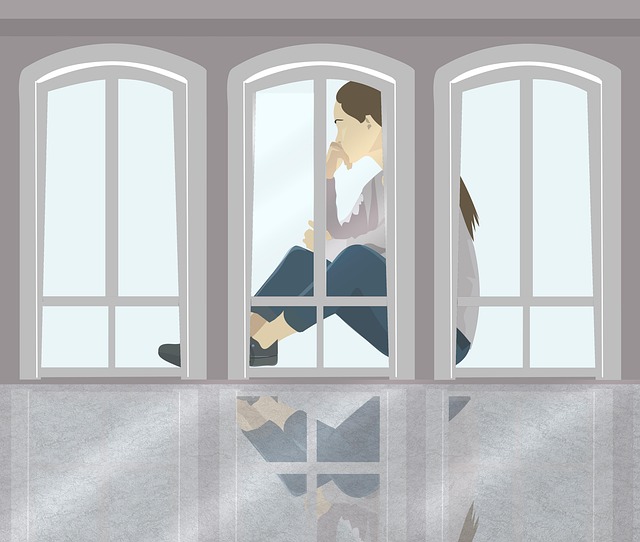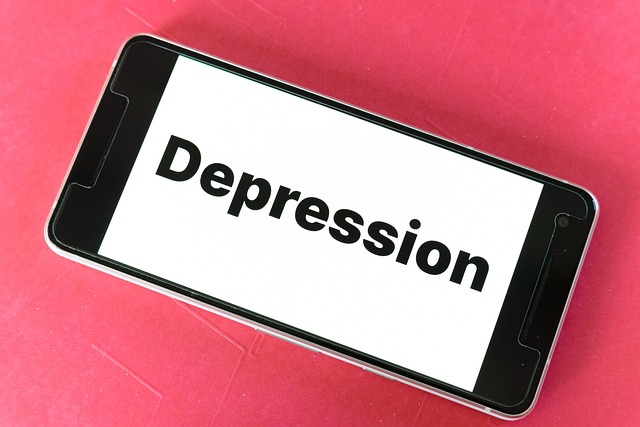Chronic depression, lasting over two years, significantly impacts daily life. It's characterized by persistent sadness, hopelessness, and changes in appetite, sleep, concentration, and can lead to isolation and impaired work performance. Depression therapists play a vital role in managing this condition, offering evidence-based practices like CBT and IPT for personalized support. Through therapy, individuals learn coping strategies, challenge negative thoughts, and develop resilience. Building a strong therapeutic alliance with a licensed therapist specializing in CBT or IPT is crucial for successful recovery. This comprehensive approach integrates lifestyle changes, mindfulness, and cognitive techniques to enhance well-being.
Depression, when persistent and severe, becomes chronic, affecting millions globally. This article delves into navigating chronic depression, exploring essential aspects of counseling. Understanding symptoms and impact is the first step towards recovery. We examine the role of skilled depression therapists in treatment, highlighting various therapeutic approaches. Building a strong therapeutic alliance and adopting effective coping strategies are crucial. Additionally, we offer tips for finding the right therapist, emphasizing the importance of specialized depression therapists in managing this complex condition.
Understanding Chronic Depression: Symptoms and Impact

Chronic depression, also known as persistent depressive disorder, is a long-lasting form of depression that can significantly impact an individual’s daily life and overall well-being. Unlike major depressive episodes that may come and go, chronic depression persists for at least two years, affecting how one feels, thinks, and behaves. Symptoms include persistent feelings of sadness, hopelessness, lack of interest in activities once enjoyed, changes in appetite and sleep patterns, fatigue, difficulty concentrating, and recurrent thoughts of death or suicide.
The impact of chronic depression is profound, affecting various aspects of an individual’s life. It can lead to social isolation, strained relationships, impaired work performance, and a diminished quality of life. Fortunately, seeking support from depression therapists is a crucial step towards managing and overcoming this condition. Through therapy, individuals can learn coping strategies, challenge negative thought patterns, and develop healthier ways of navigating life’s challenges.
The Role of Depression Therapists in Treatment

Depression therapists play a pivotal role in helping individuals navigate and overcome chronic depression. Through various therapeutic techniques, these professionals guide clients towards understanding and managing their symptoms effectively. The process often involves exploring underlying causes, developing coping strategies, and fostering resilience to cope with daily challenges.
Qualified depression therapists utilize evidence-based practices such as cognitive-behavioral therapy (CBT) and interpersonal therapy (IPT) to provide personalized support. They create a safe and non-judgmental space, encouraging open dialogue and fostering trust. This collaborative approach equips individuals with the tools needed to enhance their mental well-being, improve overall quality of life, and achieve lasting recovery from chronic depression.
Different Types of Therapy for Chronic Depression

When seeking counseling for chronic depression, individuals have several therapeutic options available to them. Cognitive Behavioral Therapy (CBT) is a widely recognized and effective approach, focusing on identifying and changing negative thought patterns and behaviors. This type of therapy empowers patients by teaching them practical coping strategies to manage symptoms and improve their overall well-being.
Other popular therapeutic modalities include interpersonal therapy, which emphasizes the connection between one’s relationships and mental health; psychodynamic therapy, delving into unconscious thoughts and past experiences; and mindfulness-based cognitive therapy (MBCT), combining elements of CBT with mindfulness practices. Depression therapists may tailor these treatments to suit individual needs, offering personalized support throughout the healing process.
Building a Therapeutic Alliance with Your Counselor

Building a strong therapeutic alliance is crucial for effective counseling, especially when dealing with chronic depression. This partnership between you and your counselor serves as a safe space where you can openly discuss your feelings and experiences. A skilled depression therapist will create an environment that fosters trust, encouraging you to share your thoughts without fear of judgment. They will actively listen, validate your emotions, and provide support, ensuring you feel heard and understood.
The therapeutic alliance is strengthened through mutual respect, honesty, and collaboration. Your counselor will work with you to set goals and develop strategies tailored to your unique needs. Regular communication and consistent effort from both parties are key to this process. By building this alliance, you can expect a more engaging and beneficial counseling experience, which is essential for managing chronic depression and improving overall well-being.
Coping Strategies and Lifestyle Changes for Management

Counseling offers a range of coping strategies and lifestyle changes that can help individuals manage chronic depression effectively. Depression therapists often guide clients to adopt healthier habits, such as regular exercise, adequate sleep, and a balanced diet, which have been proven to improve mood and overall well-being. Engaging in activities that bring joy, practicing mindfulness, and maintaining a structured routine can also be powerful tools in combating depressive symptoms.
Additionally, therapists may teach clients cognitive behavioral therapy (CBT) techniques to identify and challenge negative thought patterns. Learning stress management skills, setting realistic goals, and fostering social connections are other valuable strategies. By incorporating these coping mechanisms into daily life, individuals can better navigate their depression and improve their overall mental health.
Finding the Right Therapist: Tips and Considerations

Finding the right therapist for chronic depression is a crucial step in your journey to recovery. It’s essential to consider specialists who have experience treating this specific condition, as they’ll understand the unique challenges you face. Look for licensed professionals with training in cognitive-behavioral therapy (CBT), interpersonal therapy (IPT), or other evidence-based approaches known for their effectiveness in managing depression. Online reviews and referrals from trusted sources can guide your search for reputable depression therapists.
When evaluating potential candidates, assess their communication style, ensuring it aligns with your comfort level. Some clients prefer direct and structured therapists, while others benefit from a more empathetic and flexible approach. It’s also wise to consider factors like scheduling flexibility, privacy policies, and the therapist’s ability to adapt their techniques to your needs. Remember, building a strong therapeutic alliance is vital for successful treatment, so take your time to find someone you feel connected to and understand.
